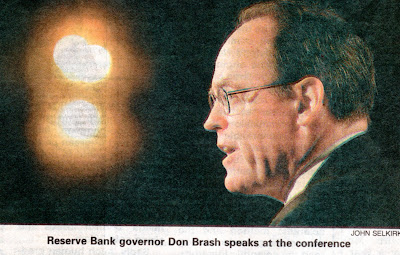Sixty-three percent of children reported having directly experienced physical violence at some time in their lives. Two-thirds reported having witnessed physical violence directed at other children, and nearly 90% reported having seen violence in the media. Although less common, still more than a quarter of the children (27%) reported witnessing violence against adults.
...there is no breakdown of socio-economic status, gender, age or ethnicity. What I would have been interested in.
Instead, because of the nature of the type of research, the report features many direct quotes from children. If you only like the cute things kids say, stop here.
"I've been punched, grabbed by the throat and hung over a trellis and then thrown on the concrete"
"I get hidings all the time and some people hurt me"
"Kicked by somebody I don't know because my dog went on their land"
"I got into a fight with my Mum and I hit her. Then she hit me with the broom and kicked me out of the house"
"Some kids tease me and do wrestling moves on me and I'm getting scabs and bruises"
"I saw people having a fight. Blood on walls and carpet. Screaming and yelling."
"My Mum and her boyfriend always get in arguments and I've seen heaps of things get smashed"
"I watched my Aunty and my Dad fighting with knives inside at night"
"My Dad hurt Mum in town and made her mouth bleed".
"In the Christmas holidays my family went away with our friends, but Dad wasn't allowed to come because Mum had a something order out on him. But on the third day we were there Dad came because he needed to talk to Mum, and Dad and my Dad's friends got in a big fight with me, all my sisters and the rest of the camp watching."
"I woke up and heard fighting and banging the walls. I thought my Mum's boyfriend was beating her up."
"When my Mum and Step-Dad broke up they started hitting each other. I was in my room in bed."
"I've been hit with metal or any objects my parents pick up. My Dad abused my Mum when I was young"
"When I got beaten up and when I got chased by a man. When my sister got beaten up by my Dad and when my sister got raped"
"I have been followed by a man six times. I got taken off my Dad. Dad went to jail for beating my Step-Mum and assaulting her. I got punched by someone in my family. But I am not telling who. And my Mum is having a bad time at the moment at home."
"People get mean to me because my Mum goes out with heaps of men"
"Dad's girlfriend yells at me and swears at me when Dad isn't around for no reason"
"People said I would be traded for a dog"
"When my Mum and Dad had a fight and my Dad wouldn't stop beating my Mum up and I can't stop thinking about it, but they don't do that any more and when my Dad yells at my brother and the way he speaks."
"I've been scared when my Mum and Dad fight because I don't know who to go to."
"I have been sexually abused and just had it sorted out and I had to move away from all my friends and family. My brothers always hurt me by calling me names about my weight and size."
"My Dad went to jail for raping me."
"My friend got body slammed before my eyes and I was too weak to help him get up."
"Mum has been quite a witch, spelt with a B, and started screaming at me. I've tried suicide two times because of her"
Enough?
You will be interested in the conclusion from the researchers:
The level of children's exposure to violence in this country is relatively high, and New Zealand appears to be a more violent country for children than was previously realised. The perceptions of the children in this study were that their experiences had a notable impact on their wellbeing. Furthermore, observation of violent events was rated as having a more powerful impact on children than their own victimisation. For many children the conclusion can be drawn that bullying is part of their childhood. Reporting the effects of their violent experiences highlighted the special vulnerability of children. Adults must assume responsibility to reduce our children's exposure to violence because New Zealand cannot afford the devastating effects of failing to protect its children.


